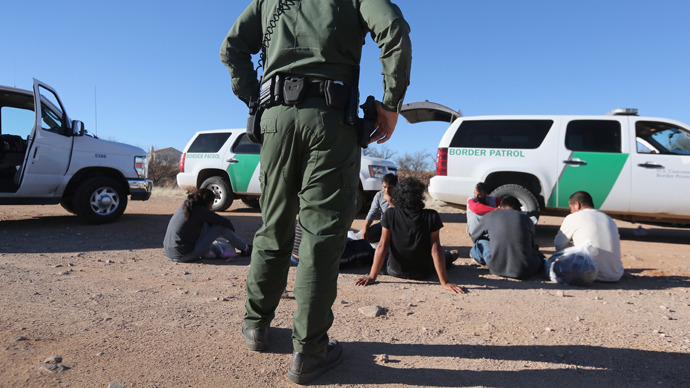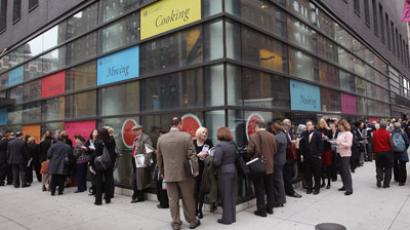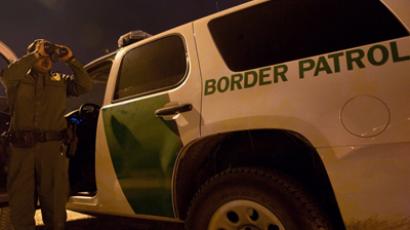US citizens make up 80% of drug arrests at Mexican border - report

According to data from the Center for Investigative Reporting, Americans are taken into custody 80 per cent of the time in drug-related arrests at the Mexican border, as Mexican drug cartels favor US nationals because customs won’t suspect them.
The news will hardly be surprising to Customs and Border Patrol
agents, but it might be a shock to Americans relying on the
assumption that drug offenders are almost exclusively criminals
from south of the border. That stereotype is reinforced by the
public message broadcast by police, who frequently publish press
releases detailing major busts of Mexicans while overlooking major
trends.
Center for Investigative Reporting (CIR) researchers Andrew
Becker, G.W. Schulz and Tia Ghose admitted that American citizens
are acting as drug runners for major cartels. “But the public
message that the Border Patrol has trumpeted for much of the last
decade, mainly through press releases about its seizures, has
emphasized Mexican drug couriers, or mules, as those responsible
for transporting drugs,” they write.
Customs and Border protection officials explained their
selective press releases as a method of bringing attention to
significant or “otherwise noteworthy seizures.”
A general overview, when an individual’s immigration status is
known, reveals that four out of every five such arrests is that of
a US citizen. That statistic changes when detainment for marijuana
is removed from the data, though Americans still make up 60 per
cent of arrests for harder drugs like cocaine and
methamphetamine.
Retired deputy director of US Immigration and Customs
Enforcement Alonzo Pena told CIR that the lack of a clear
understanding of what’s happening at the border could contribute to
bigger problems in the future.
“After the 9/11, the immigrant, terrorist and criminal and
the threat to national security have all been lumped together,”
he said. “We’re not distinguishing very well who is
who.”
His assertion was bolstered by the evidence that, as illegal
border crossings have dropped in recent decades, the administration
of US President Barack Obama has doubled the number of police at
the border to 21,000 officers.
“Real reform means stronger border security, and we can build
on the progress my administration has already made – putting more
boots on the southern border than at any time in our history, and
reducing illegal crossings to their lowest levels in 40 years,”
Obama said during his 2013 State of the Union address.
So far, that policy has turned the border patrol from
immigration police into drug investigators.
Mexican drug syndicates have adopted the new strategy of sending more people across the border with lower drug amounts instead of fewer people carrying heavier loads. That method decreases the likelihood of a harsh prison sentence but increases the need for mules, which are not so difficult to find when a bad US economy – combined with strict drugs laws - proves advantageous to criminal networks.
Smugglers are generally paid $300 for a one-time transport of a
1,000 to 1,500 pound load of marijuana across the border. That
cargo, which could cost a mule years in prison, is worth an
estimated $100,000 to traffickers.
“With the economic downturn, you just have pools of people
out of work,” Arizona defense attorney Jeffrey Bartolino told
CIR. “The great majority that are caught with 100 kilos or 150
kilos in a car or truck are people that are hired that days or the
week before and they needed money.”













